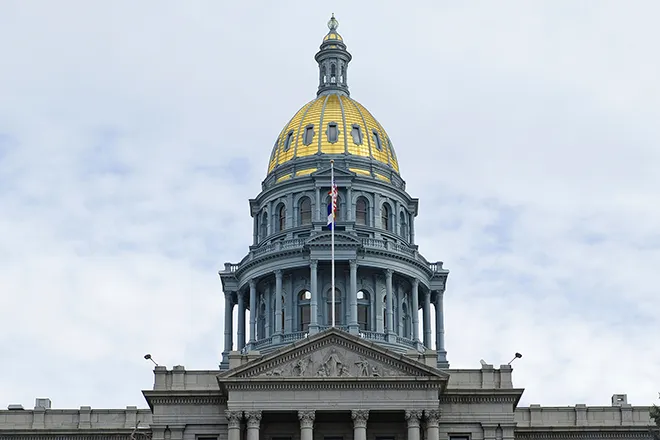
Colorado lawmakers warned of billion-dollar budget crunch
Colorado could face a budget crunch totaling in the billions of dollars if a sweeping budget bill proposed by President Donald Trump and Republicans in Congress becomes law, analysts warned state lawmakers on Wednesday.
The so-called budget reconciliation bill has passed the House and is now being considered in the Senate, which has offered its own version with slightly different policy points. State economists from the governor’s Office of State Planning and Budget relied on the House-passed version for their analysis.

© iStock - nick1803
Colorado be on the hook for up to $650 million per year to offset the bill’s deep cuts to federally-funded social programs. State costs for Medicaid could increase by up to $350 million, and costs for the Supplemental Nutrition Assistance Program could increase by up to $300 million if the federal bill passes and state policy does not change, OSPB Director Mark Ferrandino told lawmakers on Wednesday.
That is due to the provisions considered in the federal bill that reduce federal funding and create more administrative burden for the state agencies in charge of running Medicaid and SNAP, including new mandatory work requirements for some Medicaid recipients, cuts to federal matching for states that have coverage for immigrants without legal status and increased dollar matching for SNAP.
In addition to those new costs, the tax changes considered in the reconciliation bill could add up to a roughly $600 million hit to Colorado’s state tax revenue. An economic recession, the odds of which the governor’s office now estimates at 50 percent, could cause another $1.6 billion budget hole.
“We do have a potential of a recession and potential of reconciliation… that could really wreak havoc in where we are from a budget perspective,” Ferrandino told members of the Joint Budget Committee, who use quarterly economic forecasts like the one presented Wednesday to craft the state budget.
Both the OSPB and the nonpartisan Legislative Council Staff downgraded their economic growth predictions and General Fund revenue from March.

© iStock - Geerati
“Trump’s disastrous tariff taxes continue to wreak havoc on our economy and the erratic trade policy is projected to continue hurting our economy, slowing job growth, and increasing chances of a recession,” Governor Jared Polis, a Democrat, said in a statement. “These national circumstances present a difficult economic environment for the state.”
The JBC is fresh off a legislative session where they had to balance a state budget with a $1.2 billion starting deficit. They wrote a $43.9 billion spending plan that cut state funding for transportation projects and social programs created through legislation that were barely implemented.
There will be another economic forecast before budget writers start work on the 2026–27 fiscal year plan.
“In a tight budget year, we protected the key services and programs Coloradans and their families rely on, but Colorado can simply not absorb the proposed federal cuts to Medicaid and SNAP,” Representative Emily Sirota, a Denver Democrat, said in a statement after the forecast.
Both sets of economists predict that state tax revenue will exceed the limit set by the Taxpayer’s Bill of Rights over the next few years, but that surplus will be small. Colorado is required to refund excess revenue back to taxpayers through a variety of mechanisms, and the anticipated surpluses may not cover required property tax reimbursements to local governments. The Legislature may need to spend $72 million in the upcoming fiscal year and $154 million in the following fiscal year to make up the difference, according to the LCS. The small TABOR surplus also means there probably will not be an income tax reduction or Family Affordability Tax Credit for the 2026 tax year. OSPB does predict those tax credits will be triggered for the 2025 tax year.
Due to lower income tax revenue and several pieces of recent state legislation, Colorado is anticipated to have $313 million less in its general fund during the 2025–26 fiscal year than what was previously projected, according to LCS.
Much of the projected excess costs to the general fund come from a ballot measure funding law enforcement recruitment and training that voters passed last year. The General Fund will also have about $230 million less in the 2026–27 fiscal year to implement a new school funding plan by moving that money to the State Education Fund.

















